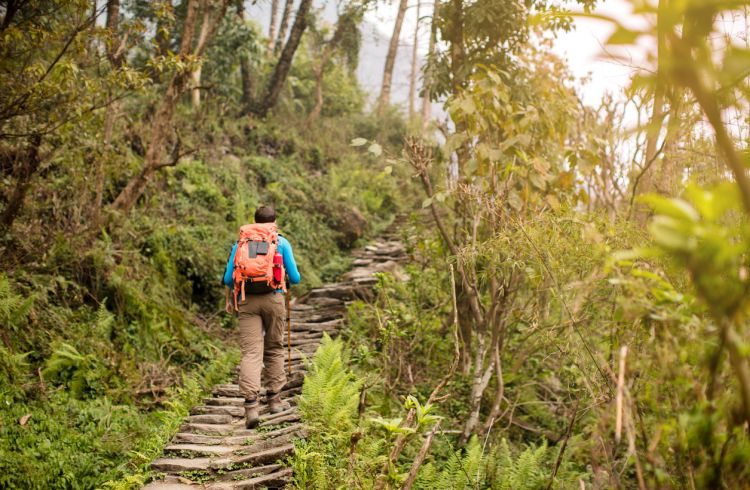How to Avoid Mosquito Bites: What You Need to Know
Mosquitoes are the most dangerous animal on the planet and kill hundreds of thousands of people each year by carrying and spreading diseases. Find out to protect yourself from these tiny terrors while traveling.
Shares
 Photo © iStock/miljko
Photo © iStock/miljko
According to the World Health Organization, around 725,000 people die from mosquito-borne diseases each year. Malaria is believed to be responsible for half of mosquito-related deaths, while the remainder are diseases such as yellow fever, chikungunya and dengue fever.
- What are mosquitoes?
- Mosquito-borne diseases
- What attracts mosquitoes?
- 4 ways to prevent mosquito bites
- Natural vs commercial mosquito repellents
- Do oral mosquito repellents work?
What are mosquitoes?
Mosquitoes are two-winged insects in the order of Diptera. Anopheles, Culex and Aedes are the types of mosquitoes to know, as they are responsible for most human bites and disease transmission.
Only female mosquitoes are biters because they require blood to help produce eggs. They typically require a blood meal every three to four days.
The males are content with flowers and nectar.
Different species prefer to feed at different times during the day. For example, the Culex mosquito, which carries diseases such as West Nile, Japanese encephalitis and filariasis, prefers to bite from dusk to dawn – and this is the time travelers should be most aware of mosquitoes, and be prepared with insect repellent and long-sleeved clothing in mosquito-infested areas.
Mosquito-borne diseases
Before you go traveling, it's important you are familiar with the disease mosquitoes may carry. Yellow fever and dengue fever are two common viral illnesses travelers need to be aware of. Fortunately, Yellow fever is vaccine-preventable.
Malaria is another disease that travelers need to know about. This blood-borne, parasitic infection is a global killer. Chikungunya fever is carried by the Asian Tiger Mosquito which also carries yellow fever. Others include Zika virus and filariasis. There are many other infections carried by mozzies and they all help make up a list of reasons to not get bitten.
What attracts mosquitoes?
What attracts mosquitoes to bite is not completely understood and involves all of the mosquito's senses. Mosquitoes lock on to their target with the help of visual and thermal clues, plus a very developed sense of smell. The time of day a mosquito chooses to bite helps illustrate what clues it uses to find your body.
Day biters are believed to have a more developed visual sense and are attracted to darker colors, such as black t-shirts. Lots of movement can also draw their attention.
Dusk-to-dawn biters are known for a more elaborate heat-sensing system, being attracted to the heat and moisture of your skin.
People who sweat more are also believed to be more attractive to mosquitoes. Perfumes, scented soaps, and lotions are also likely attractants.
Several good hypotheses exist about the likelihood of mosquito attraction to carbon dioxide, the gas we exhale when breathing.
Different mosquitoes are attracted to different locations on our bodies such as ankles, faces or hands.
In general, adults are more likely to be bitten than children, men are bitten more than women, and larger people are more likely to be bitten than smaller people.
4 ways to prevent mosquito bites
Wear the right clothing
Lighter colors are best, and long sleeves and pants act as a physical barrier to the attacking mosquito. In warm climates, wear lightweight clothes to avoid overheating.
Use mosquito nets
Mosquito nets, positioned over beds at night time, act as a barrier to keep mosquitoes away from you while you are asleep.
Travelers who are staying in accommodation with permanently closed windows and air conditioning are going to get away without using a net. However, if you are staying in rural areas or hostels with open windows and outside access, be prepared with a bed net.
Carry Permethrin
Permethrin is an insecticide that kills or stuns bugs. Developed from the Chrysanthemum flower, permethrin can be applied directly to clothing or fabrics such as tents, mosquito nets, shirts, pants and curtains. Studies have shown that permethrin lasts for approximately two weeks and doesn't stain, is almost odorless and can remain through several washings.
Proper application is typically done with a spray, using just enough to moisten the fabric and allowing two to four hours to dry.
Permethrin also provides protection against other disease-carrying insects such as mites, fleas, ticks, and flies.
Most mosquito coils, which are burned to prevent mosquitoes in a limited area, contain permethrin. Even though the chemical has a low ability to be absorbed through the skin and has very low toxicity to mammals, it should not be applied directly to the skin.
Use DEET
DEET works by disrupting the mosquito's sense of smell and helps to jam the radar of the mosquito trying to find a target. Intensive testing of more than 20,000 other compounds has shown DEET to be the best in terms of duration of protection and types of insects it repels.
DEET is also effective at repelling fleas, ticks and chiggers.
Typical commercial preparations of DEET include gels, lotions, and sprays and it can be found in various concentrations, up to 100%. Most travel medicine literature agrees that a concentration of 35% DEET is optimum, providing decent protection for several hours and limiting potential skin irritation side effects.
The American Academy of Pediatrics advises the use of only a 10% DEET concentration for children less than 12 years old.
Typically, the higher the concentration of DEET, the longer the protection time is afforded. One study looked at 12.5% DEET offering 6 hours of protection, while 25% of compounds only provided 8 hours.
When using sunscreen and DEET together, the effectiveness of the sunscreen will be reduced, requiring more frequent sunscreen application to prevent sunburn
Natural vs commercial mosquito repellents
Despite the efficacy and safety profiles of DEET and permethrin, you might prefer natural mosquito repellents such as eucalyptus, garlic, citronella and vitamin B. Citronella, derived from the grass Cymbopogon, is the most promising. Studies have shown protection against bites but for shorter times than DEET. One study showed a 10% citronella compound provided 84% protection over 4 minutes, versus a 14% DEET solution that gave 96% protection. Another study has confirmed that the same 5% citronella offered 88% protection over a 2-hour period. Generally, citronella will require more frequent applications for decent protection.
Citronella candles and incense have been proven to deter mosquitoes in backyards, porches, and rooms. Investigations have shown a 42% reduction in bites from those nearby candles versus those who had no protection.
Do oral mosquito repellents work?
This has been a 'holy grail' for mosquito bite prevention, but no effective data has been shown. Ingestion of certain foods has long been believed to act as a bite deterrent but has yet to be proven despite many attempts. Mosquito attraction is a complex system involving multiple methods, other than simply a sense of smell. Garlic, onions bananas and even oral preparations of vitamin B have all been disproved.
Mosquitoes carry diseases that can, at the least, ruin a trip with unwanted illnesses. Severe infections, carried by mosquitoes, can result in death. Prevention of mosquito bites is a key feature of travel health and needs to be thought of, well in advance of a trip. Considerations in selecting an appropriate mosquito repellent include:
- How long do I need protection? 8 hours per day, for 2 weeks, or simply a few hours touring some archaeology sites?
- Availability of products, locally
- Transportation of your method (suitcase, carry-on, backpack) and space it will require
Most importantly, the decision to use nothing is foolish. A combination of 35% DEET skin spray and permethrin-treated clothing is considered the most effective method. People who used this combination method of protection showed 99.9% protection over 8 hours. This was in stark contrast to those who were unprotected and received an average of 1,188 bites per hour.
Remember is that it only takes one infected mosquito bite to make you sick.


No Comments